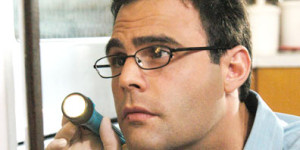Public health inspections are carried out to determine compliance with regulations. They also serve as a means of informing operators on proper food safety practices. However, health inspections are snap shots in time and are typically performed once to three times a year, primarily due to a lack of resources.
 The importance lies in what happens when the inspector is not present. Is there a food safety culture within the establishment or is the operator just out to make a buck? Everyone is different and everyone responds differently to certain stimuli. The folks who keep insisting that they haven’t caused a foodborne illness in over 30 years may require a stringent approach. Others may respond differently. Does the operator have food safety training and if so, what kind? I am an advocate of a hands-on approach to food safety training by actually demonstrating food safety practices with operators in their restaurant. In this regard, operators can focus on what they need to do to ensure food safety in their own environment. Does a restaurant operator really need to know what temperatures inactivate parasites in fish if the only things they serve are burgers?
The importance lies in what happens when the inspector is not present. Is there a food safety culture within the establishment or is the operator just out to make a buck? Everyone is different and everyone responds differently to certain stimuli. The folks who keep insisting that they haven’t caused a foodborne illness in over 30 years may require a stringent approach. Others may respond differently. Does the operator have food safety training and if so, what kind? I am an advocate of a hands-on approach to food safety training by actually demonstrating food safety practices with operators in their restaurant. In this regard, operators can focus on what they need to do to ensure food safety in their own environment. Does a restaurant operator really need to know what temperatures inactivate parasites in fish if the only things they serve are burgers?
Phil’s Pantry in Pontypool was fined after a health inspection for hygiene breach. According to the South Wales Argus:
A Pontypool delicatessen was fined after cooked foods were stored below raw meat.
A hygiene inspection in Phil’s Pantry in Pontypool Indoor Market also found there were no towels to dry hands.
The inspection also discovered cooked foods in a fridge stored next to and below raw meat.
Food safety records suggested food safety checks had been carried out on foods which had not been delivered and towels for hand drying were available when they were not.
The owner, Philip Jolliffe, pleaded guilty, and was fined £225 with £200 costs and a £20 victim surcharge.
Rob Mancini, a MS graduate of Kansas State University, is a health inspector with the Manitoba Department of Health.
